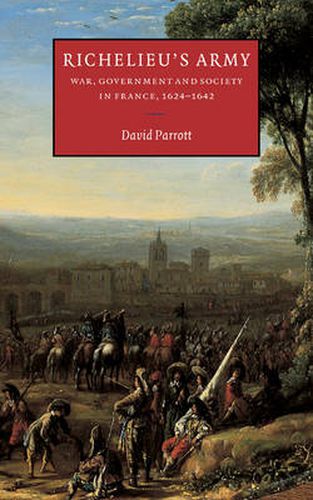Readings Newsletter
Become a Readings Member to make your shopping experience even easier.
Sign in or sign up for free!
You’re not far away from qualifying for FREE standard shipping within Australia
You’ve qualified for FREE standard shipping within Australia
The cart is loading…






It is assumed widely that ‘war made the state’ in seventeenth-century France. Yet this study of the French army during the ministry of Cardinal Richelieu (1624-42) shows how the expansion of the war effort was not matched by army reform but by a reliance on traditional mechanisms of control. The army imposed a huge burden upon the French population, but far from being an instrument of the emerging absolutist state its demands contributed to weakening Richelieu’s hold upon France and heightened levels of political and social tension. This is the first detailed account of the size, organisation, recruitment, financing and control of the troops during this formative period of French history. The book also includes a detailed study of foreign policy during Richelieu’s ministry, and places the training, deployment and fighting methods of the French army into the context of arguments for military change in early modern Europe. Runner up in the History Today Awards 2002.
$9.00 standard shipping within Australia
FREE standard shipping within Australia for orders over $100.00
Express & International shipping calculated at checkout
It is assumed widely that ‘war made the state’ in seventeenth-century France. Yet this study of the French army during the ministry of Cardinal Richelieu (1624-42) shows how the expansion of the war effort was not matched by army reform but by a reliance on traditional mechanisms of control. The army imposed a huge burden upon the French population, but far from being an instrument of the emerging absolutist state its demands contributed to weakening Richelieu’s hold upon France and heightened levels of political and social tension. This is the first detailed account of the size, organisation, recruitment, financing and control of the troops during this formative period of French history. The book also includes a detailed study of foreign policy during Richelieu’s ministry, and places the training, deployment and fighting methods of the French army into the context of arguments for military change in early modern Europe. Runner up in the History Today Awards 2002.